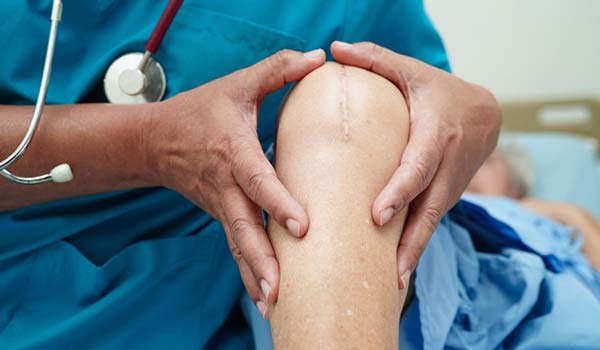Did you know that over 700,000 knee replacement surgeries are performed each year in the United States alone? Before diving into this procedure, understanding what to expect can make a world of difference. From managing pain to preparing your home for recovery, knowing what lies ahead can ease anxieties and lead to a smoother rehabilitation journey.
In this post, we’ll explore essential insights about knee replacement surgery, shedding light on aspects you might wish you had known beforehand. Stay tuned to learn how to navigate this transformative experience.
Quick Summary
Before knee replacement surgery, knowing about the recovery process, pain management, physical therapy’s importance, and the need for patience and persistence can significantly ease the journey.
8 Things You Wish You Knew Before Knee Replacement Surgery
Discover 8 things about knee replacement surgery from firsthand experiences. Learn about recovery, therapy, and unexpected challenges to prepare for your journey.
Understanding Recovery
Timeline Expectations
Prepare for a slow recovery post-surgery. Returning to normal activities may take longer than expected. Discuss realistic recovery timelines with your medical team.
Emotional Challenges
Address feelings of isolation and moodiness post-surgery. Seek support to cope with emotional challenges. Communicate openly with a healthcare provider if overwhelmed.
Rehab Intensity
Commit to intensive rehabilitation post-surgery. Follow physiotherapist’s exercise regimen diligently. Rehabilitation may be a long-term process.
Managing Pain
Pain Levels
Post-surgery pain can be intense but can be managed effectively with prescribed injections and pain relief strategies. Avoid overexertion to prevent exacerbating the pain levels.
Medication Side Effects
Be cautious of potential side effects from pain medications, including constipation, drowsiness, and nausea. Monitor symptoms closely and adhere to the prescribed medication regimen.
Coping Strategies
Develop coping mechanisms to navigate post-surgery challenges, ensuring a smoother recovery process. Engage in activities that support mental well-being and seek professional assistance if coping becomes overwhelming.
Importance of Support
Physical Assistance
Accept help for basic tasks during the recovery period. Prioritize safety to prevent any accidents or setbacks in your healing journey. Embrace assistance for mobility until fully recovered, ensuring a smooth rehabilitation process.
Emotional Support
Surround yourself with a supportive network of friends and family who can offer encouragement and understanding. Share your feelings and concerns openly with loved ones to alleviate emotional burdens. Seek professional counseling if needed to address any lingering emotional struggles effectively.
Pre-Surgery Preparation
Research Options
Before undergoing knee replacement surgery, it is crucial to explore all non-surgical options available. This includes physical therapy, medications, and lifestyle modifications. Consulting with healthcare providers will provide valuable insights into the alternative treatments that may alleviate your knee pain. By educating yourself about both surgical and non-surgical interventions, you can make an informed decision.
Setting Expectations
Establishing realistic expectations for the outcome of the surgery is essential. While knee replacement can significantly improve mobility and reduce pain, it’s vital to understand the limitations and potential challenges associated with the procedure. Open communication with your medical team about your expectations ensures that they can tailor their approach to meet your needs effectively.
The Surgery Experience
Procedure Insights
The knee replacement surgery involves replacing damaged surfaces of the knee joint with artificial components. Surgeons meticulously cut away damaged bone and cartilage before fitting the prosthetic pieces. Patients can discuss anesthesia options to alleviate any concerns.
Hospital Stay
After the surgery, patients should prepare for a hospital stay lasting several days. Following post-operative guidelines is crucial for a smooth recovery process. It’s essential to openly communicate any discomfort or worries with the medical team.
Post-Surgery Reality
Mobility Limitations
Post knee replacement surgery, acknowledge the temporary mobility limitations experienced. Healthcare providers often recommend assistive devices to aid in movement. It is crucial to follow their guidance and gradually engage in rehabilitation to regain mobility.
Adjusting daily routines becomes essential to accommodate the post-surgery limitations. Rest and proper self-care should be prioritized during the recovery period. By making necessary adjustments to daily activities, individuals can facilitate a smoother healing process.
Daily Impact
The impact of knee replacement surgery on daily life can be significant. Adapting routines to suit post-surgery needs is crucial for a successful recovery journey. Prioritizing rest and self-care not only aids in healing but also promotes overall well-being.
Making small changes in daily activities, such as avoiding strenuous tasks, can help prevent complications and ensure a smooth recovery process. By being mindful of one’s limitations and actively participating in rehabilitation, individuals can enhance their overall quality of life post-surgery.
Rehabilitation Journey
Physiotherapy Role
Physiotherapy plays a crucial role in the recovery journey after knee replacement surgery. It is essential to recognize the significance of physiotherapy for improving strength and mobility. Engaging in physiotherapy exercises consistently is key for optimal results. By following the guidance of the physiotherapist, individuals can effectively regain strength and mobility.
Exercise Importance
Understanding the importance of regular exercise post-surgery is vital for successful rehabilitation. It is essential to incorporate prescribed exercises into daily routines to promote healing. Focusing on building strength and flexibility through exercise helps enhance overall recovery.
Mental Health Aspect
Coping Mechanisms
Develop coping strategies to manage post-surgery pain and discomfort. Engage in light exercises as recommended by healthcare providers to aid recovery. Implement breathing techniques for relaxation and stress reduction.
Seek solace in activities like reading or listening to music to distract from any discomfort. Stay optimistic and focus on small victories during the rehabilitation process. Celebrate progress, no matter how minor it may seem.
Seeking Help
Reach out for assistance when needed, whether it’s for physical support or emotional comfort. Lean on healthcare professionals for expert advice on managing pain effectively. Don’t shy away from asking friends and family members for help with daily tasks.
Remember that recovery is a gradual process; be patient with yourself and allow time for healing. Seek professional guidance if you experience persistent pain or mental health concerns. Your well-being is a priority, so don’t hesitate to seek help when necessary.
Summary
You’ve learned about the crucial aspects surrounding knee replacement surgery. From understanding the recovery process and managing pain to the importance of support and mental health considerations, you are now equipped with valuable insights for your upcoming or recent surgery. Remember to prepare diligently before the surgery, stay positive during the post-surgery phase, and engage wholeheartedly in your rehabilitation journey.
Your mental well-being is just as important as your physical recovery, so ensure you prioritize both aspects for a successful outcome. Stay connected with your support system, follow your healthcare provider’s guidance, and remain patient with yourself throughout this transformative experience.
Ageless Knees Reviews | Is It Worth the Hype?





